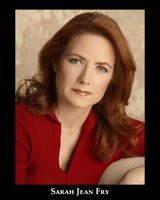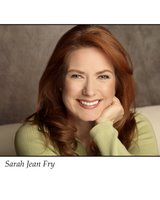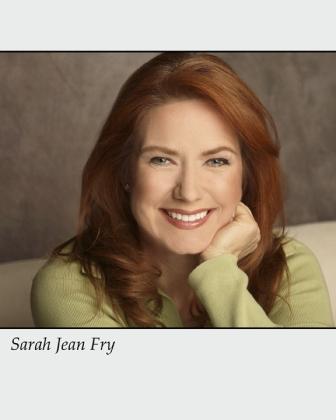Casting director workshops, also called CD workshops, pay off if you take them. Every time I go to a CD workshop I learn something new. If I learn one new thing, then I have gotten my money’s worth.
First of all, you get to audition for a CD for whom you might not otherwise audition. Secondly, they will remember you most of the time because you spent your money and they are honest, hard working people like actors, directors and everyone else in this industry. A crew member of a television episodic said it well yesterday. He said, “We’re all day players these days.” I think that is true and probably always has been true. And CDs are day players, too.
Lately, it seems I learn a lot more in the workshops than I used to. I wonder if it is the quality of the people coming in to teach or the quality of my ability to listen. I suspect it is a little of both. I think CDs, like actors, just keep getting better. The ones who work are overall better because the competition is tougher. Certainly, I hear with better ears and see with better eyes, too.
For one, I go in to CD workshops with an entirely different focus than I used to. I think I used to go in with only the thought of giving a good performance. But now, there’s so much more that I want. First of all, my performance is not always going to be great. The trick about that is doing a good job as often as possible and raising the baseline of your performance by acting every day or nearly every day. What do I mean by baseline? By baseline, I mean the line at which you are most likely to perform on any given day. We’re not always at our best or our worst. We mostly perform on some middle ground, some middle ground for us. So, raise your average performance level. This will give you more confidence and this in turn will feed your performance.
The second thing I go in with that I didn’t when I was less experienced is an open mind. If you’re focused on yourself or your performance in the workshop, then you can’t hear the casting director. And they offer some amazing advice. Each one will give you something different, often something unique to their current situation. But the more CDs you see, the more you get a feel for the industry and a feel for areas in which you might fit better.
What kind of advice do they give you? They almost always give you feedback. However, you have to read their body language, because they want to be kind and be as gentle as they can. They love actors (well, a lot of them do) and they want us to do well. So, they’re not always going to verbally give us the information we need. They’re likely to give us information we probably want. For example, if you ask a question, watch the body language along with the answer. I asked a question a while ago, and though her response was reasonably positive, she sat way back in her chair. She told me, “You needed more energy. You would’ve been far angrier than your were.” I asked, “Would you give me that note in an audition and then ask me to do it again?” She sat way back in her chair and said, “If I were directing, I might, but you’re supposed to know that.” Here’s the thing, I wasn’t asking if she’d give me feedback, I was asking if she would be likely to let me try again. I was wondering if I had the right look, would she help me out. I was also curious if she liked me or my look. I got the sense that she really didn’t and that I hadn’t really impressed her. I’ll take her class again though. She’ll take a look, because I have talent and have a castable look. But I know one thing going forward, I darn well better be prepared if I ever go in to a pre-read for her. She’s not likely to give me a second chance.
But by the same token, we learned that her office does give a second chance. This was yet another important piece of information from a CD workshop. They called someone in 3 times for the same role. Now it wasn’t just anyone. It was a name actor. So, that means second chances are available after you get to certain level. The other thing I learned is that if they call you in three times and you blow it the third time, too. You are out. She said they will not call this actor in again. And she said, the CDs associated with this project will be wary of the agent who kept calling and begging for the second and third auditions.
So, everyone is at risk. Everyone who is associated with an audition has something to gain or lose if you go in. The CDs want you to do well because that means they build clout with the director and/or producers. Your agent wants to do well because the agent builds clout with the CD. So, you’re part of a very webbed and complicated process called an audition.
So, I learned this particular CD is not likely to call me in yet, that she’ll give name actors a second chance, and that she’s a nice person but will give me the truth if I ask even if she’s uncomfortable doing so. These are important pieces of information.
Over several workshops lately, I keep hearing the names of certain acting teachers coming up over and over again. Leslie Cahn’s name keeps being used all around me. I know that’s my signal from the universe that it’s time to take her class. See, we tune in to the things for which we are ready or for which we need. Leslie has been around for over a decade and I’ve been doing workshops off and on for 6 years now. So, I’m thinking about taking Leslie Cahn’s class and the very question I was thinking was posed to me as I was leaving the class. A guy who I’ve seen quite a bit lately stopped me and asked, ”So, do you think there are politics around the subject of who you’ve had training with?” I found myself answering his question saying, “Well, it’s part of a big picture. You might have lots of training, but let’s say they don’t know any of your teachers. How do they know if you’ve had the training they would consider adequate? Whereas, if you have training by a teacher they recognize, they can be a little more certain you can perform at a certain level and have a certain understanding about what they can count on due to the reputation of the teacher.” I was a little surprised that I had the answer. Then I went one step further, “ Every time they even call you in, they are putting themselves on the line. First of all you’re in an elite group because you have a SAG card. Then when they call you in, you’ve been selected from nearly 3,000 submissions for that one role. So, they need you to be good. They need you to at least demonstrate that you can perform the role.” I found my own answer when someone else posed the question to me. So, I picked up information outside the workshop and not just in the workshop.
Additionally, when you go to CD workshops you can get a pulse on the industry. Times are always changing, perhaps a bit more slowly, but there are fads in the industry just like there are fads in fashion. At one point, it seemed every other actress has red hair. Now there are fewer of us. Right now, being ethnic seems to give you an edge where before it might have been being blond or being tall. (note: these are examples not actual current trends).
There are tons of other reasons to go to workshops, too. For one, you get to know and see the CDs before they call you in for a role. I think you gain confidence the more you perform in front of industry professionals, especially ones who can actually help your career.
Think of it this way. No one actually does you a favor (there are exceptions, of course). They are trying to fill a role and you may fit. If you have demonstrated some consistent performance skills, or better yet improvement each time, you are likely to get your chance. Through the CD workshops, they get to know you and through getting to know you, they can trust that you’ll show up, you’ll do as asked, and hopefully, you won’t make a fool of yourself or do something unprofessional while you’re in their office or in front of their peers or superiors.
I realized something else last night, too. The guy who asked about the politics of teachers scoffed just a bit and said, “Yea, she said she has a sixth sense.” Interestingly enough, I heard myself say, “Think of it this way, they live and breath actors, acting, and the industry hours and hours a day. After all that time for a few years, they are picking up subtleties they don’t even know they are picking up. They just know they’re right. They call it sixth sense because they really don’t have time to analyze why they’re right” Guess what? I didn’t know I knew that. And the thought I had while walking away was, “And I’ll know when I’m ready to book and so will they.” Now that was a strange phenomenon. Because you see, we book when we’re ready. CDs book us when we’re ready. The question is how to get ready? Keep doing what you’re doing and keep learning and training every day. Eventually it will come. If you do something long enough, you will eventually be good at it. When you’re good, then someone will want to pay you to do it. That’s the deal.



